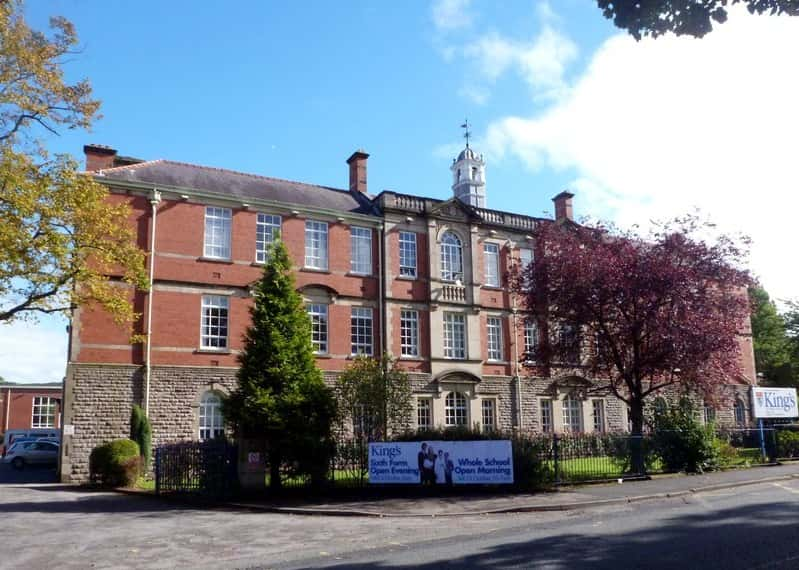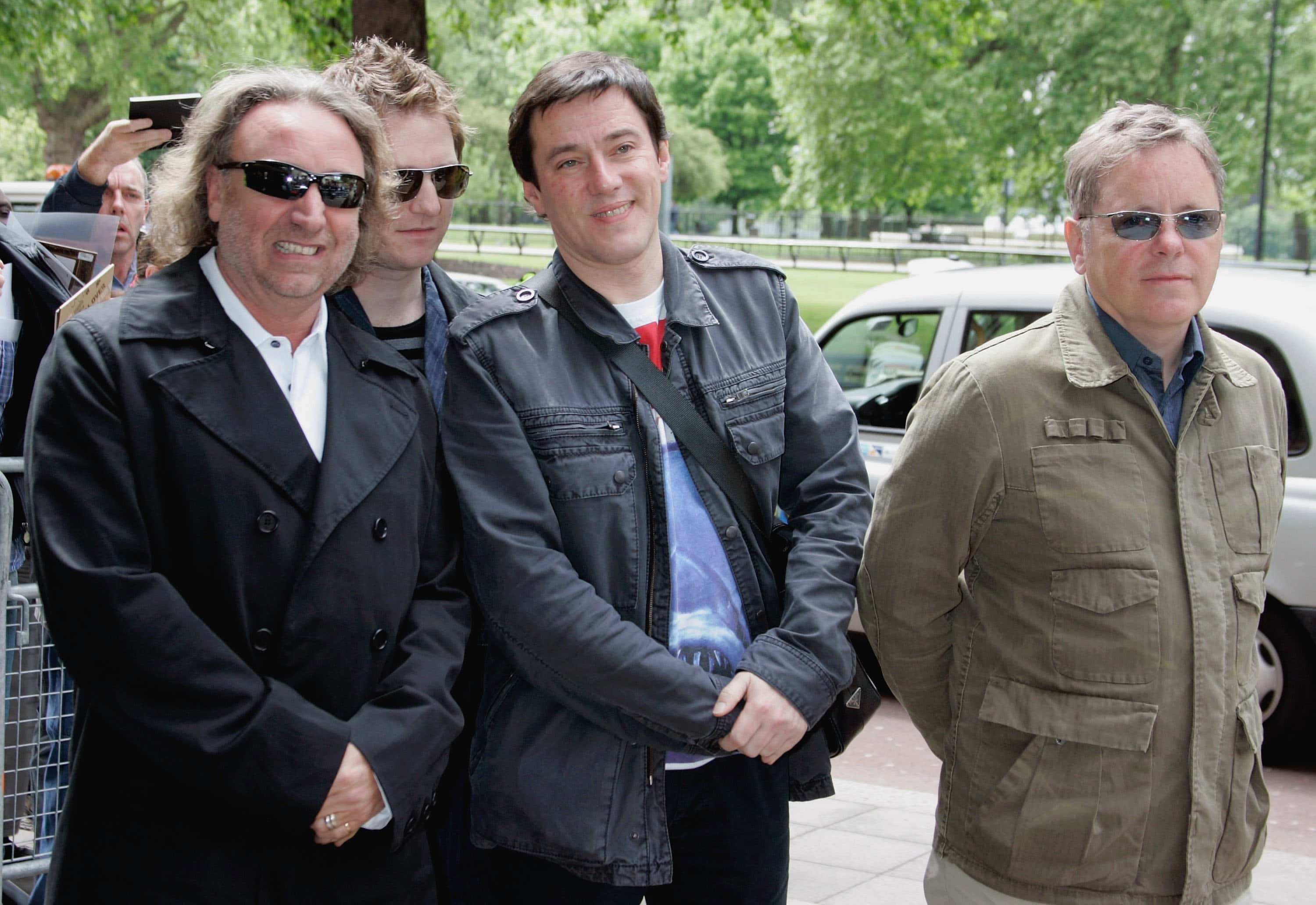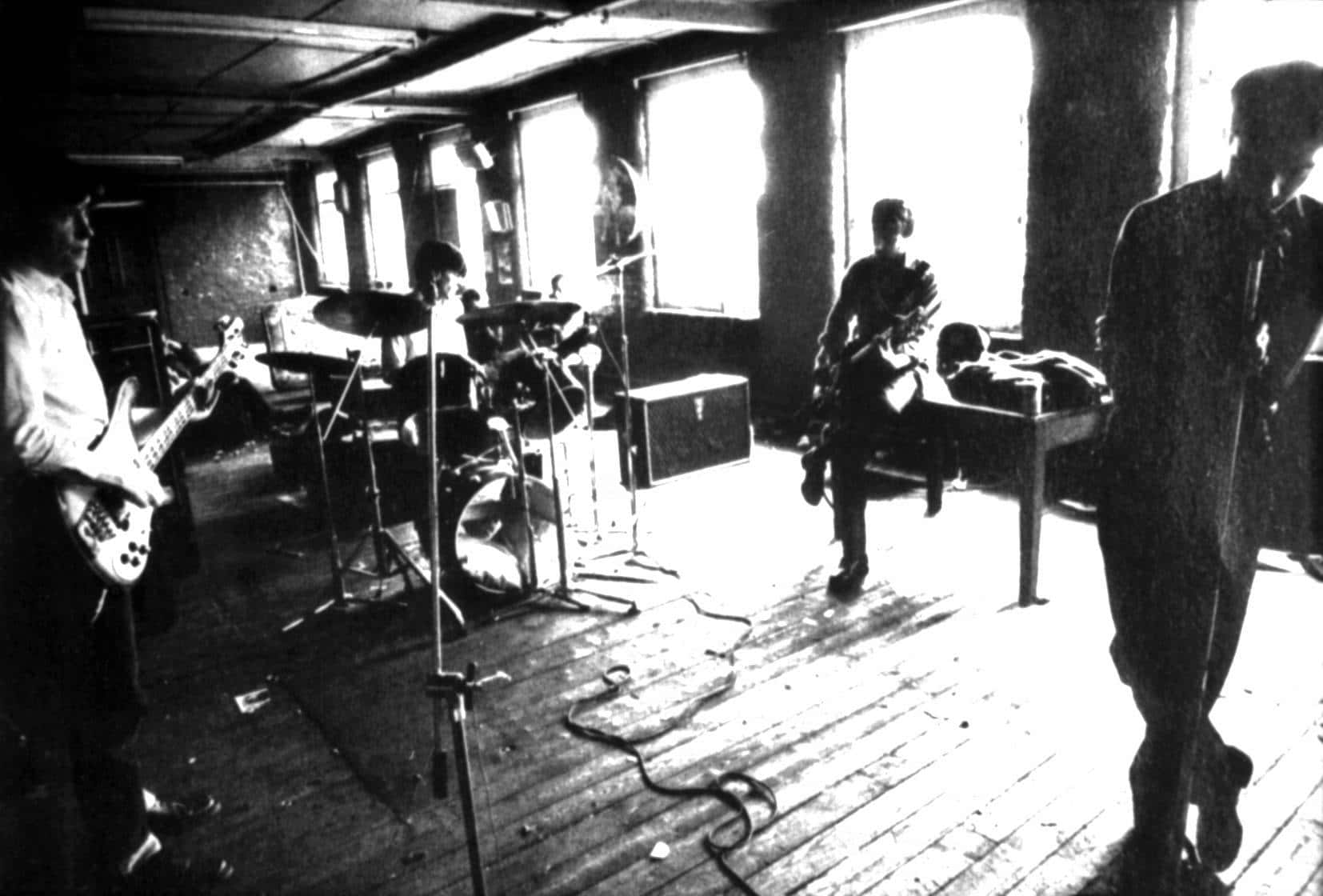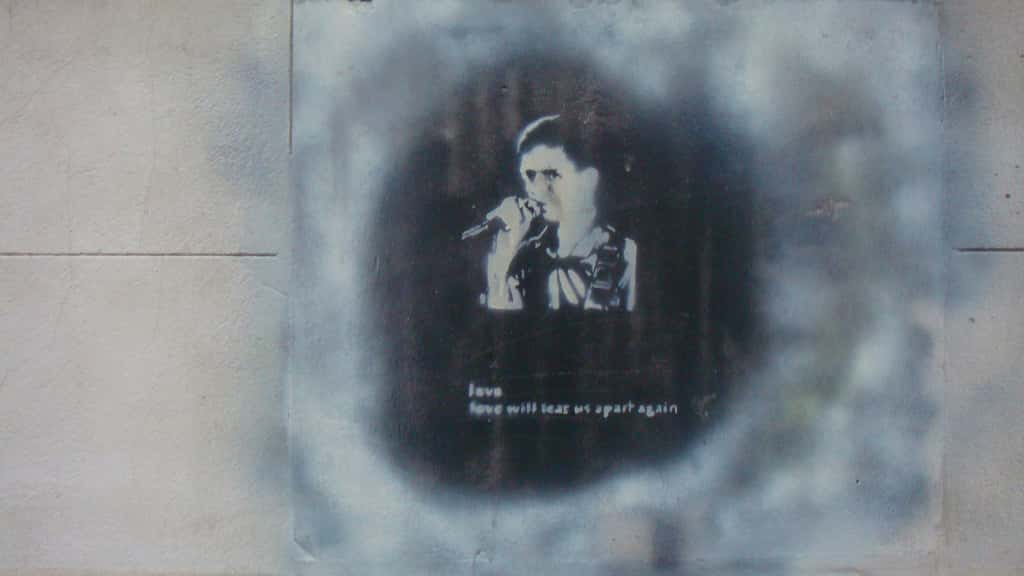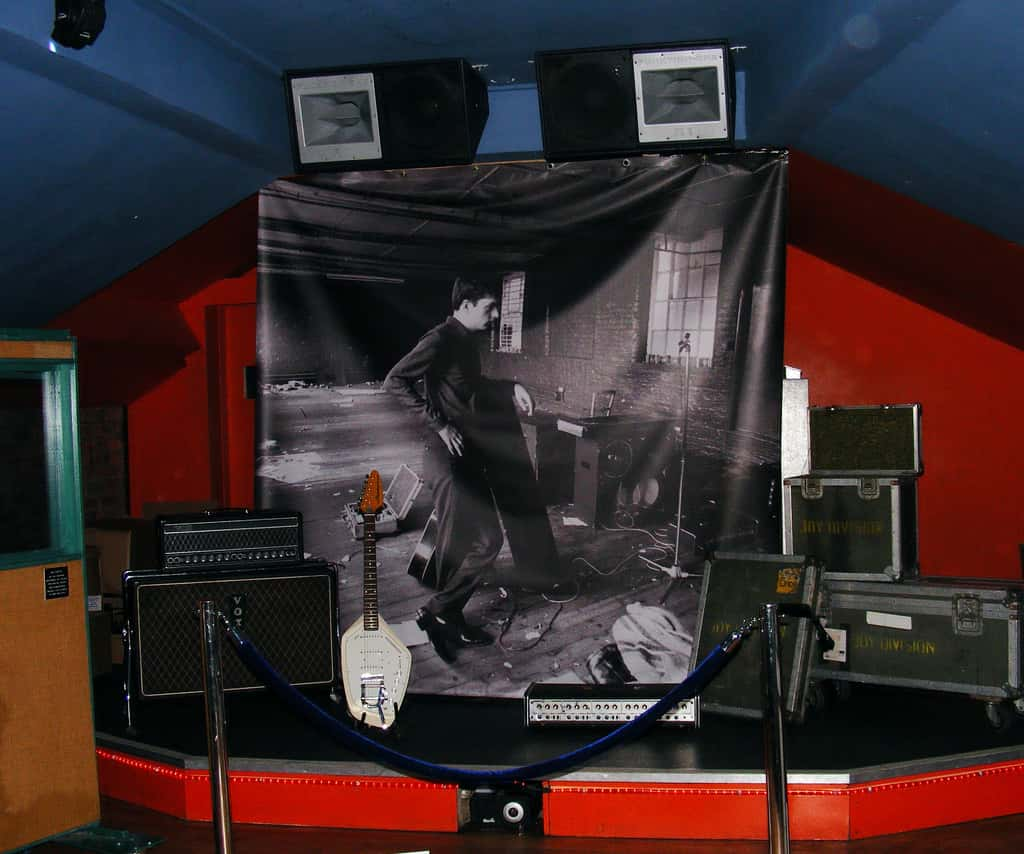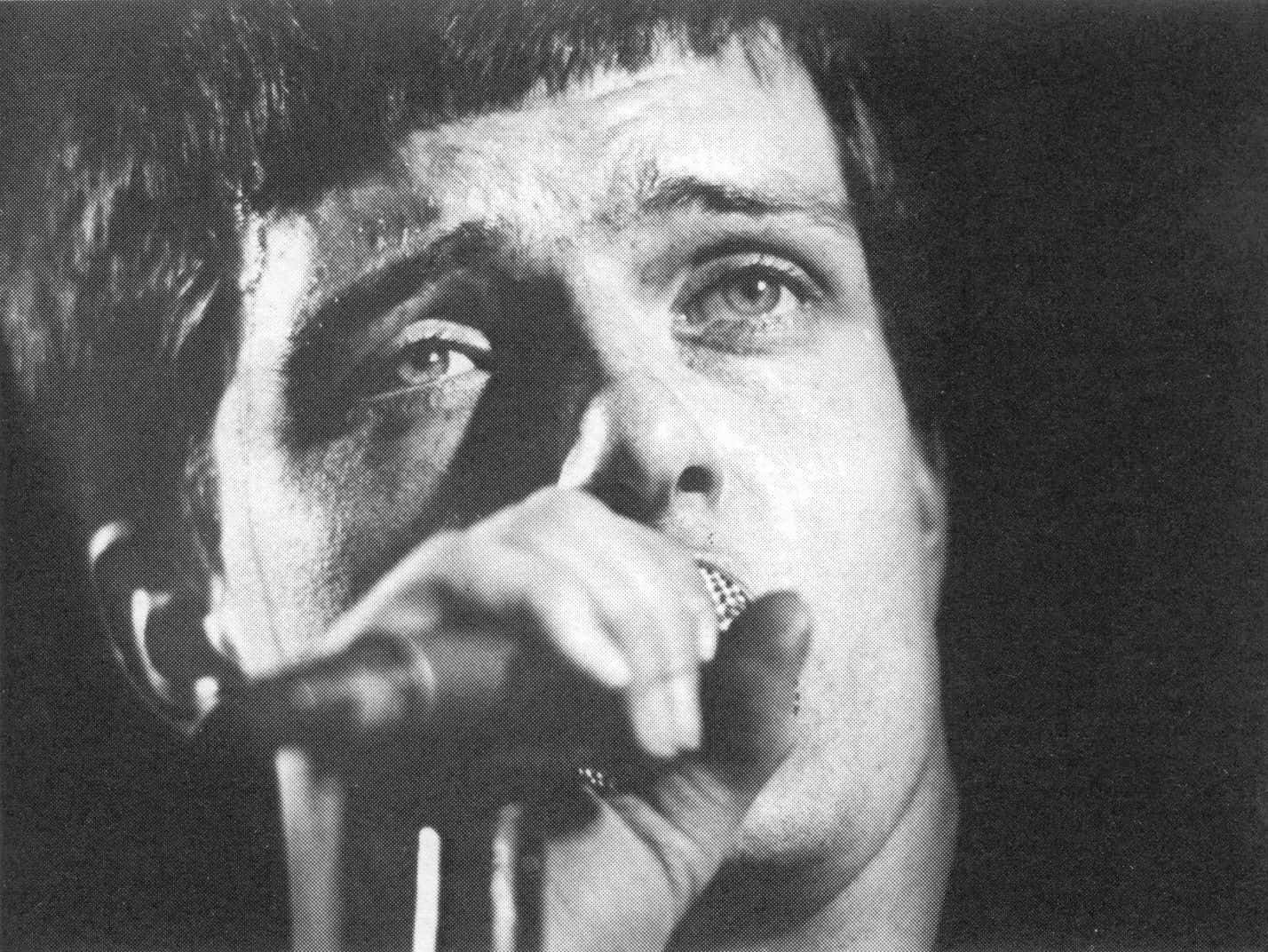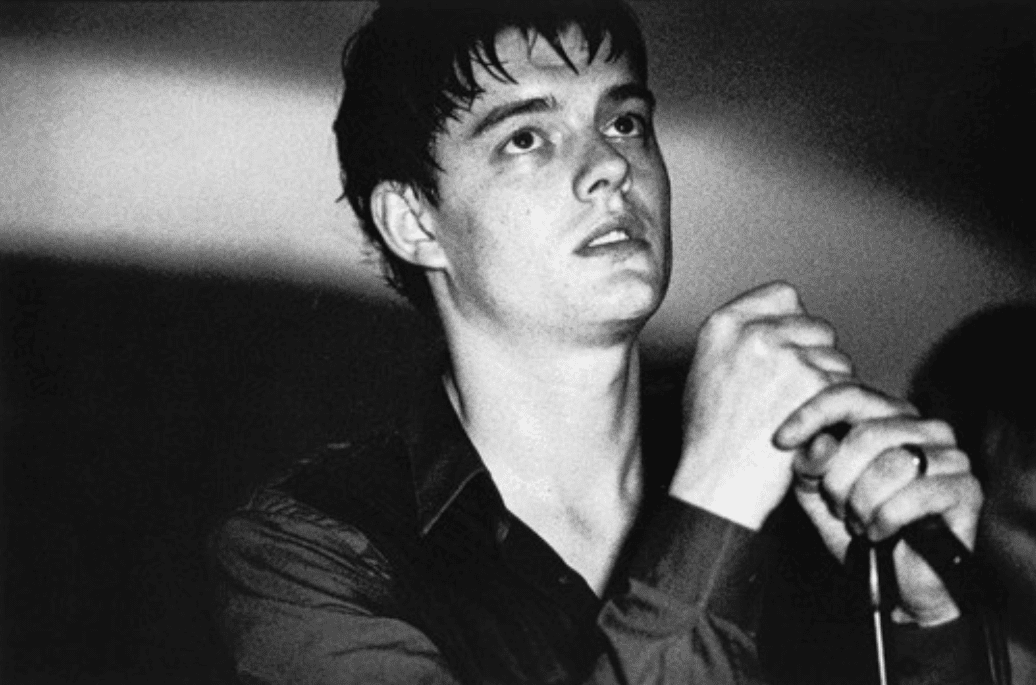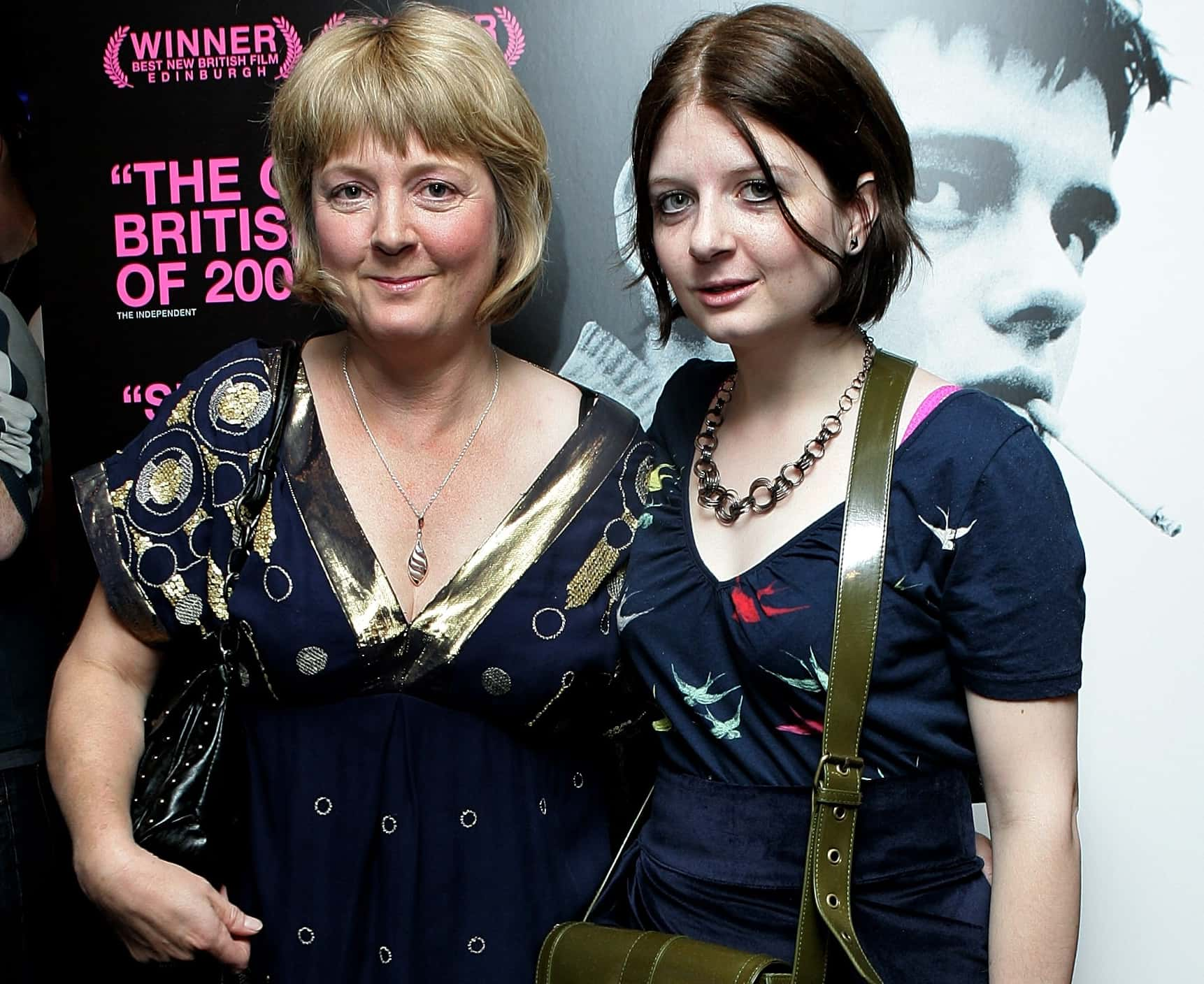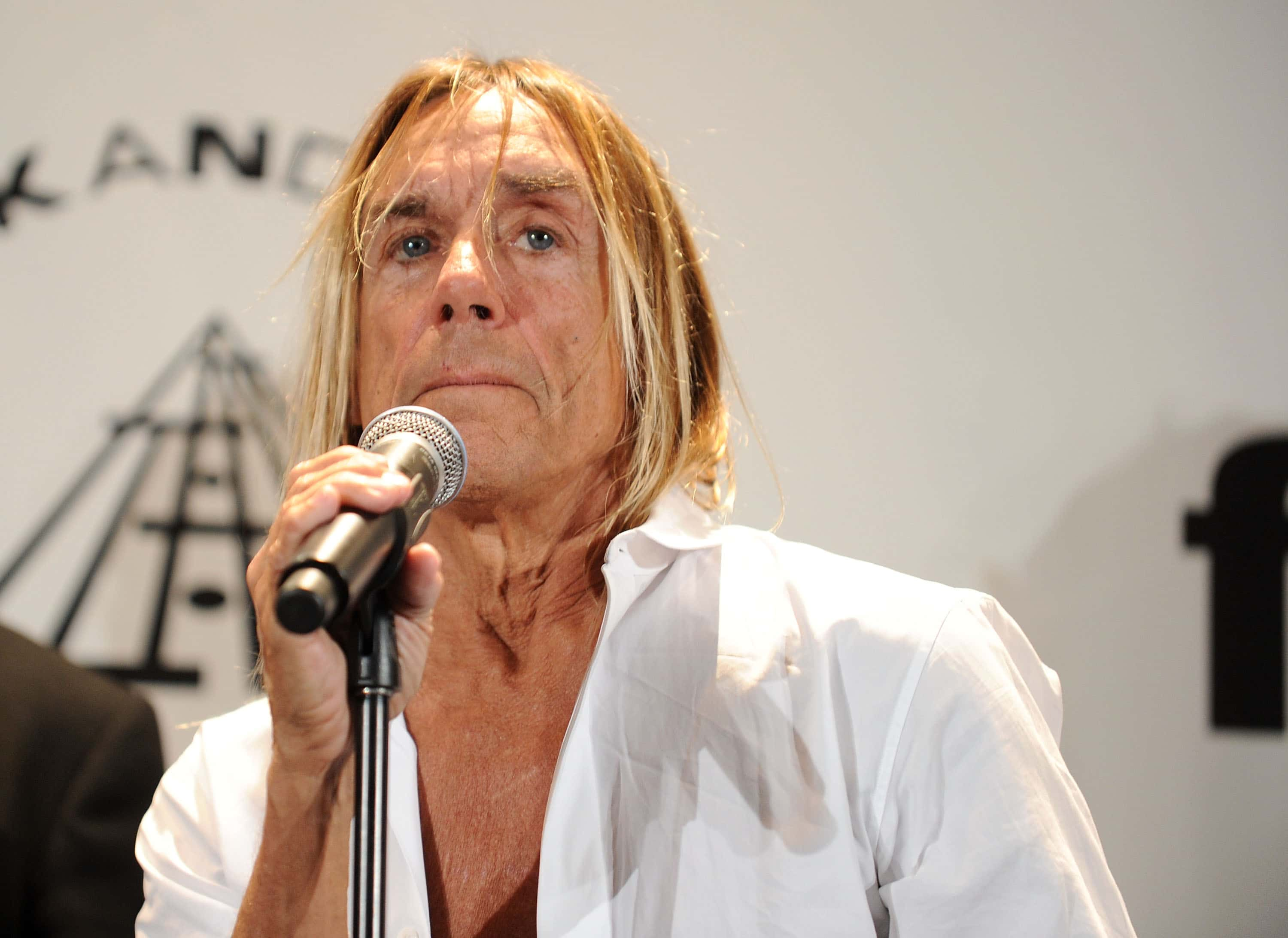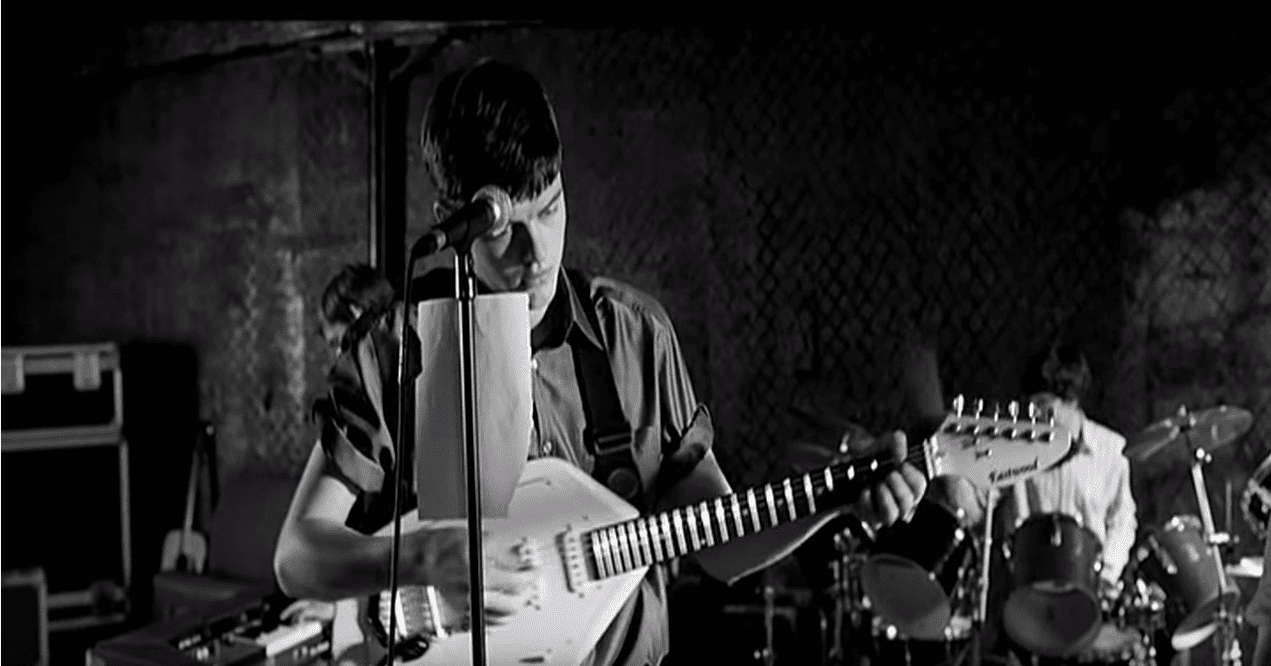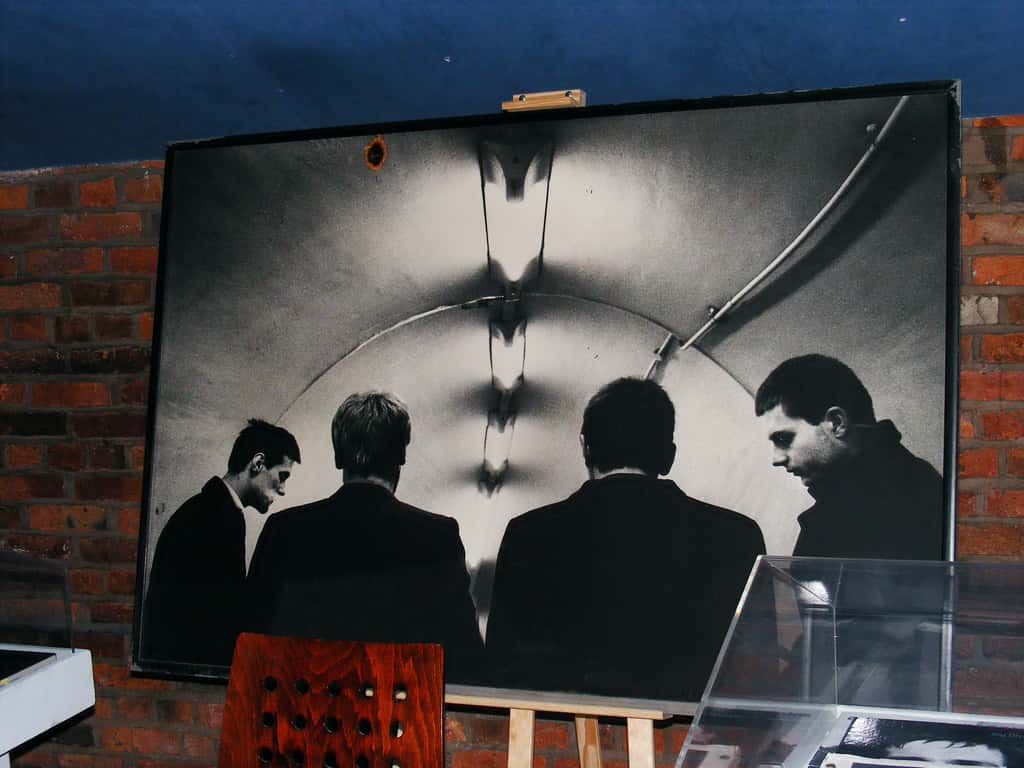On record, a dark poet with an inimitable bass-baritone croon. On stage, a worrisome but undeniably mesmerizing combination of raw post-punk energy and precarious physical health. In his personal life, a deeply troubled husband, father, and man who ultimately couldn’t overcome his many personal demons. Joy Division frontman Ian Curtis’s status as a musical and pop cultural icon is well and truly cemented at this point, but what about all the nitty-gritty facts that flesh out his all-too-short story? To quote the man himself, “This is the way, step inside…”
1. Humble Beginnings
Like so many other seminal 80s post-punk bands, Joy Division formed in the city of Manchester, but Ian Curtis grew up about an hour outside of that formative city; in a working-class home in the industrial town of Macclesfield, Cheshire. He was born on 15 July 1956, his parents were Kevin and Doreen Curtis, and he was the first of two children.

2. Poetic Soul
Curtis’s hauntingly introspective and intelligent lyrics became one of Joy Division’s chief hallmarks, and this flair for poetry was something he developed very early on. At just eleven years old, he received a scholarship at Macclesfield's independent King's School, where he developed his literary interests and received a number of scholastic awards for his talents.
3. Sticky Fingers
Curtis couldn’t afford to buy music in his teens and used to shoplift regularly; mostly albums from the Macclesfield town center that he would hide underneath his long grey coat, but also bottles of booze from the local off-licenses.
4. Elegy For Ian
Following Ian's tragic loss, the remaining band members notably proceeded to establish New Order, wherein they achieved success and persistently shaped the post-punk landscape throughout the 80s. Their 1985 instrumental track “Elegia” is a tribute to Ian.
5. Gotta Bring Home The Bacon
Curtis briefly studied History and Divinity at St. John’s College, but soon dropped out in favor of seeking paid employment. He got a job at a record store in Manchester and then bounced around the civil service in a few different positions before working as an Assistant Disablement Resettlement Officer.
6. Young Love
Curtis started dating Deborah Woodruff when they were both 16, and they were married less than three years later. They moved in with Curtis’ grandparents at first, then ultimately settled down in their own house on Barton Street, Macclesfield.
7. Welcome Aboard
Curtis joined Joy Division after responding to an ad they had placed in Manchester’s Virgin Records store looking for a singer (the original vocalist, Martin Gresty, had left the band to work in a factory). Curtis, who the band knew from attending gigs in town, was hired without an audition, on the basis that he was “alright to get on with,” according to guitarist Bernard Sumner.
8. He Will Not Be Erased
Take a stroll down Wallace Street in Wellington, New Zealand, and you’re likely to spot an immortal tribute to Curtis on one of its walls. The phrase "Ian Curtis Lives" surfaced there shortly following his departure in 1980, and no matter how often it's painted over, it gets inscribed once more.
9. Dear Tony
Legendary Factory Records founder Tony Wilson got involved with the group after Curtis wrote him an abusive letter, berating him for not putting them on his music TV show So It Goes. A man of unconventional tastes and impulses, to say the least, Wilson promptly put them on the show as a result, and subsequently signed them to Factory. He even ended up using his life savings to fund the band’s debut album.
10. Lyrical Genius
Curtis was the band’s sole lyricist. As he told a journalist in 1978, he had a book full of lyrics “in reserve” from which he would pluck lyrics to use “when the right tune comes along".
11. Flat Broke
Curtis was always short on cash, even after the modest success of the band’s first album, Unknown Pleasures. After he had finished recording, he would stick around and clean up the studio to make some money on the side.
12. Surrounded By Darkness
Before laying down his vocals in the studio, Curtis would listen to the music track once and then record with the lights off. He would have the lyrics on a sheet with him in the booth but always just sang them from memory.
13. You Rang?
In order to achieve the desired distancing effect, producer Martin Hannett recorded Curtis's vocals for "Insight" from Unknown Pleasures down a telephone line. Some of Hannett’s other unorthodox flourishes included recording the sound of potato chips being eaten, a guitar being played backward, and a bottle being smashed.
14. Icy Atmosphere
While the band recorded Unknown Pleasures, producer Hannett would crank up the air conditioning until it was almost freezing in the studio. Curtis could see his own breath as he sang.
15. A Lad’s Lad
The prevailing image of Curtis may be that of a gloomy, tortured artist always on the brink of despair, and to an extent, it’s an accurate one. But, as stated by bassist Peter Hook, he was also “one of the lads,” and often had a much more jovial side to him than people might expect. Ultimately it was a side that became eclipsed by darkness, but it’s nice to know it shone through occasionally.
16. Not Those Kinds Of Unknown Pleasures
Allegedly, during one of his many times of being strapped for cash, Curtis responded to an ad looking for young men to come and work in London. When he arrived, however, he discovered that the ad was really looking for male escorts for older ladies, and he noped on out of there.
17. But What Does It Mean?
Curtis always wanted his lyrics to be somewhat opaque and ambiguous. In response to a journalist asking about the band’s message, he once said, “We haven’t got a message really; the lyrics are open to interpretation. They’re multidimensional. You can read into them what you like".
18. Pretty Sweet
Considering his life seemed to be one steeped in darkness a lot of the time, it’s surprising to learn that Ian and Deborah had a border collie named Candy. She was named after the Velvet Underground song “Candy Says".
19. He’s Lost Control
Curtis himself was diagnosed with epilepsy in December 1978. His constantly changing medication resulted in unpleasant side effects and mood swings, which were further aggravated by an unhealthy lifestyle characterized by heavy drinking, significant inhalation of harmful substances, and a severe lack of sleep. He would sometimes collapse on stage, seemingly in the throes of a fit, and have to be carried off.
20. Here Comes The Sun
Curtis had other health problems to contend with aside from his epilepsy. Namely, he suffered from strange allergic reactions to the sun. If its rays were too intense or he was exposed to them for too long, his hands would turn red and swell up.
21. Dance Dance Dance To The Radio
Curtis' signature stage dance was often labeled as the "Fly" dance in media publications. It approximated the movements he would make while having an epileptic fit.
22. The Other Woman
While touring Europe in support of Unknown Pleasure’s release in 1979, Curtis met Belgian journalist and music promoter Annik Honoré, and the two began having an affair. He was tormented with guilt as a result, despite having apparently been controlling and cold towards his wife Deborah for a number of years, and often claiming that the marriage had been making him unhappy.
23. The First Attempt
By April 1980, the pressures of Curtis’ private and professional life were becoming insurmountable; his wife had begun divorce proceedings, Joy Division was in the midst of an intense touring schedule and about to embark on their first US tour in support of their upcoming second album, and his health was showing no signs of improving. He tried to harm himself for the first time with an excessive amount of barbiturates. After taking the tablets, he phoned his wife to tell her what he’d done because he feared he hadn’t taken enough and would be left brain damaged. She then called an ambulance.
24. The End
By May 1980, the strain of his epilepsy, depression, failing marriage and deteriorating mental state ultimately became too much for Curtis to bear. On the eve of Joy Division’s first American tour, he tragically took his own life by hanging himself in his kitchen. He was 23 years old.
25. Singing For Help
In retrospect, it seems odd that no one saw the writing on the wall when you consider the brutal honesty, hopelessness, and inner torment Ian expressed through his lyrics, especially towards the end—“Looked beyond the day in hand, there's nothing there at all” he crooned mournfully on Closer’s “Twenty Four Hours". But, according to Peter Hook and guitarist Bernard Sumner, the band just didn’t really pay close attention to the lyrics at the time.
26. The Success He Never Saw
"Love Will Tear Us Apart" was the only song for which the band filmed a video, and a month following Curtis' departure it would become the band's first and only hit. Curtis’ lyrics for the song quite blatantly addressed the disintegration of his marriage.
27. Making Dad Proud
Ian and Deborah’s daughter Natalie was born on April 16, 1979. She’s currently a photographer.
28. Artistic Comforts
In the hours leading up to Curtis' tragic passing, it has been broadly discussed that he had been viewing Werner Herzog's 1977 film Strozeck, telling the sorrowful tale of a German street performer coming to America. It's also reported that he had been immersing himself in Iggy Pop's 1977 album, The Idiot.
29. The Really Early Work
In November 2014, a poem written by Curtis when he was in primary school was sold at an auction in London for £1,100. Curtis had titled the poem “An Epitaph for an Engineer,” which honestly wouldn’t seem all that out of place on a Joy Division record.
30. Here’s To Ian
There is a specific Australian tribute dedicated to the memory of Ian Curtis and Joy Division, taking the form of a beverage. It’s called “Known Pleasures".
31. Bad Taste
A kitchen table, seemingly owned by Ian Curtis at the time of his unfortunate passing, was listed for auction on eBay in 2013. The sale, carried out by a Joy Division fan, was condemned by Deborah and Natalie Curtis and members of Joy Division and ultimately didn’t go through; but, alas, the same seller put the table up for auction again in 2015, and it sold for £621.
32. Hindsight is quite an extraordinary thing.
People close to Ian have since talked about how all the signs were there in retrospect. His wife Deborah claimed that he had told her numerous times that he had no intention of living past his early twenties. Lindsay Reade, wife of Factory Records founder Tony Wilson, claimed that Curtis had told her of his belief that the impending release of Closer, the band’s second album, would represent an artistic peak from which he didn’t know how to continue. He had also expressed his belief to her that his epilepsy would prevent him from performing live anymore. In a haunting admission shortly before his demise, he confessed to bandmate Bernard Sumner, "I feel like there's a big whirlpool and I'm being sucked down into it and there's nothing I can do".
33. Delayed Diagnosis
It has been speculated that Curtis may have suffered from epilepsy for a number of years prior to his actual diagnosis in 1978. He told his wife that he used to experience woozy floating sensations as early as 1972, and he would occasionally be disturbed by artificial lights in music venues during the mid-70s.
34. Headstone Hunters
On May 23, 1980, Curtis was cremated at Macclesfield Crematorium and his ashes were buried at the town’s cemetery. His memorial stone, inscribed with “Ian Curtis 18 – 5 – 80” and “Love Will Tear Us Apart,” was placed above his ashes. This stone was stolen from the cemetery grounds in July 2008 and later replaced by a new one with the same inscription.
35. The Big Screen Beckons
Curtis has been portrayed on screen twice in two different films, varying significantly in tone. The first was 2002’s 24 Hour Party People (in which he was played by Sean Harris), which explores Tony Wilson, Factory Records, and the Manchester music scene in general, and the next was the far more intimate Control from 2007 (played by Sam Riley), in which Curtis’ life is examined in austere and intimate black and white.
36. Family Matters
With regard to on-screen depictions of Joy Division, bassist Peter Hook has affirmed that "Control is significantly more accurate than 24 Hour Party People". Not only is it based on Deborah Curtis’ 1995 memoir Touching from a Distance (1995), but his daughter Natalie even appears as an extra in the crowd during one of the gig scenes.

37. For The Fans
77 Barton Street, the house in which Curtis hanged himself, went on sale in 2014. A Joy Division fan then began crowdfunding campaign on Indiegogo in an attempt to raise funds and purchase the property, with the intention of turning it into a museum to the late singer and to Joy Division in general. Out of the final goal of £150,000, the campaign sadly only raised £2,000. This money was later donated to the Epilepsy Society and MIND charities.
38. Money Talks
All was not lost, however. Upon hearing of the crowdfunding campaign’s failure to reach its goal, entrepreneur and musician Hadar Goldman purchased the property for £125,000—plus a £75,000 compensation fee, since the house had already been sold—with the aim of honoring the original intention of turning it into a Joy Division museum, as well as a digital hub supporting musicians and other artists around the world.
39. An Early Encounter with Mortality
As a teen, Curtis would visit a home for the elderly as part of a school program. He and his friends would acquire prescription medications during their visits and consume them collectively at a later time. When he was 16, he overdosed on some Largactil he had obtained and was found unconscious in his bedroom by his father. He had to be taken to the hospital to have his stomach pumped.
40. Oh Joy
Joy Division was known as Warsaw when Curtis joined but renamed themselves Joy Division in early 1978 to avoid confusion with Warsaw Pakt, a London punk band. Never ones to shy away from morbid inspiration, they adopted the name Joy Division. This was derived from the brutal confinement area described in the novel House of Dolls, where prisoners were forced into servitude within a concentration camp. A chilling choice indeed.
41. Kindred Spirit
The song “She’s Lost Control” from Unknown Pleasures is about a girl who used to come into the job center Curtis was working in. The girl had epilepsy, and according to Bernard Sumner, “she just didn’t come in any more” after a certain point. Curtis assumed that she'd secured employment somewhere, but later discovered she had succumbed to one of her fits.
42. For Deborah
On the night of his tragic demise, Curtis had informed his bandmates he'd meet them at Manchester Airport the next morning for their flight to America, and had requested Deborah to stay with her parents for the night. He left her a note recounting their life together and proclaiming his love for her, despite his affair. At the end of the note, he wrote that it was dawn, and that he could “hear the birds singing".
Sources: 1, 2, 3, 4, 5, 6, 7, 8, 9, 10, 11, 12, 13, 14, 15, 16, 17, 18, 19, 20, 21, 22, 23, 24, 25


